from 0 review
22 Days 21 nights
Specific Tour
15 people
___
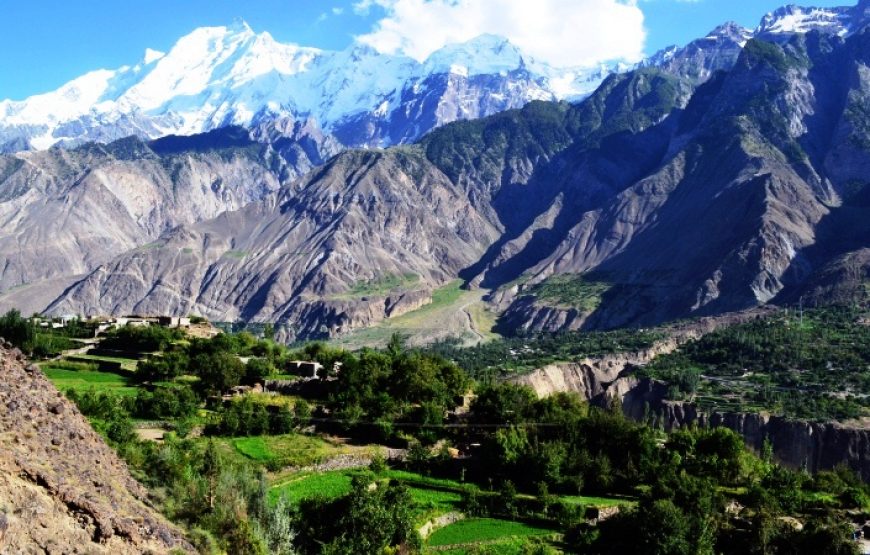
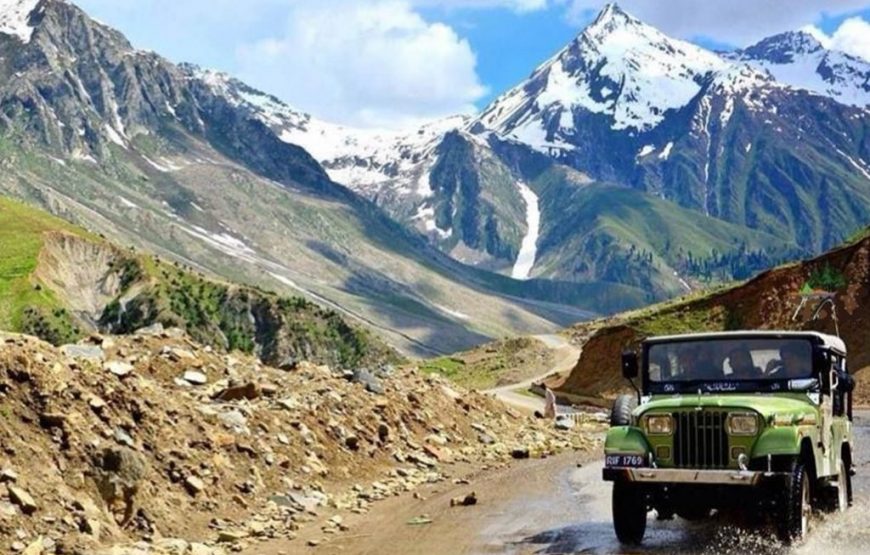
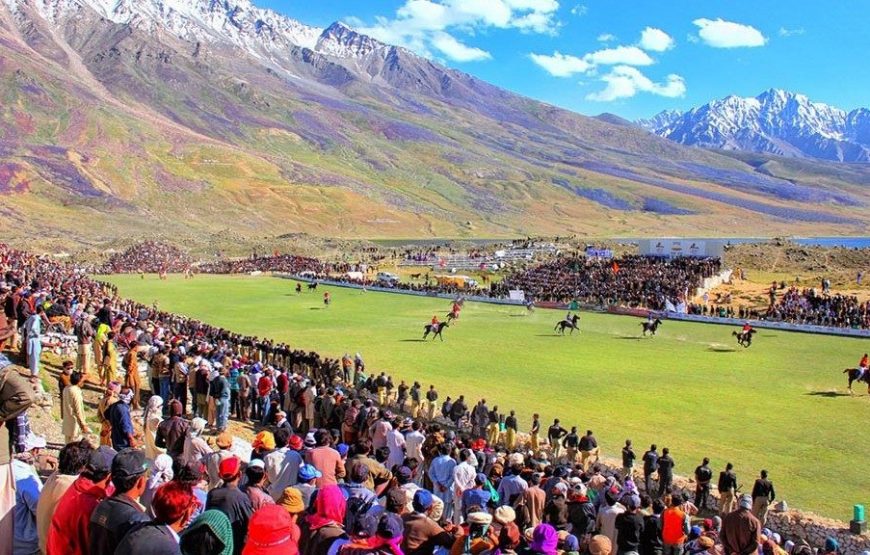
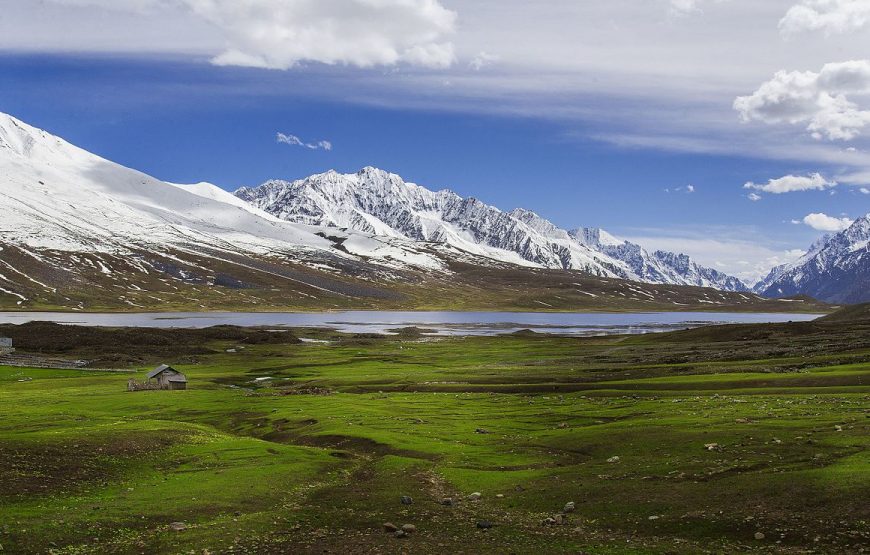
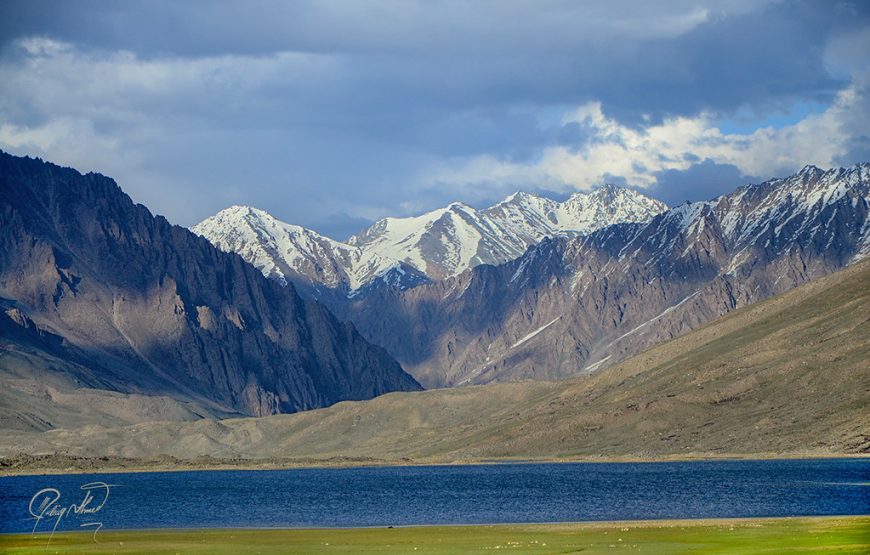
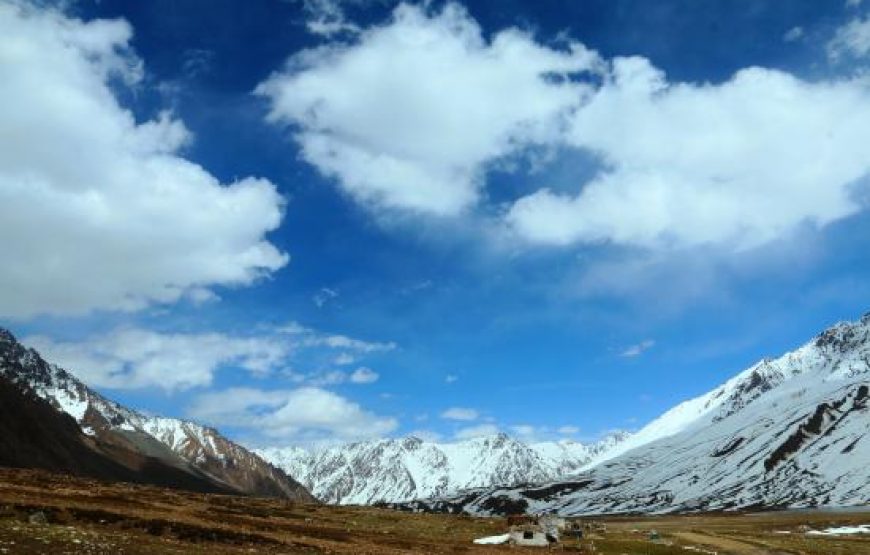
The 22-day journey through Pakistan’s northern mountain valleys, starting from Islamabad and passing through Naran, Astore, Deosai, and beyond, offers a mesmerizing experience of nature’s grandeur. This tour navigates you through the scenic valleys in the great mountain ranges of Himalaya, Hindukush, and Karakorum. The first leg of the journey takes you into the Himalayas from the green hills of Islamabad to the alpine meadows of Naran and onward to the serene valleys of Astore, where the breathtaking beauty of Deosai Plains awaits. Deosai, often called the “Land of Giants,” is a stunning plateau known for its wildflowers, streams, and rare wildlife. Reaching Skardu, the gateway to the mighty Karakoram, you explore Shigar and Khaplu, both ancient towns with stunning fortresses, rich Balti culture, and views of towering peaks.
The next phase of the trip leads to the Karakourm range from Gilgit to Hunza/Nagar, and Khunjerab Pass, a journey through some of the most dramatic mountain landscapes on Earth. The Hunza Valley, with its terraced fields and snow-capped peaks like Rakaposhi, offers a glimpse into the serene lifestyle of the locals, while Khunjerab, the highest paved border crossing in the world, connects Pakistan to China and offers unparalleled views. After enjoying the majestic beauty of these valleys, the journey winds its way to the enchanting Phander Lake, a turquoise gem surrounded by peaceful pastures, and then to Chitral, a remote yet culturally rich region.
The final leg is the Hindukush mountain valleys from Gilgit to Ghizer district and onwards to Chitral. Chitral opens the way to the Kalash Valleys, where the unique Kalash tribe celebrates their centuries-old traditions amidst stunning scenery. The route back to Islamabad passes through Swat, often called the “Switzerland of the East” for its verdant landscapes, rivers, and cultural treasures. In Swat, historical sites such as the Buddhist relics in Mingora and the breathtaking Swat Valley offer a blend of nature and heritage. Completing the journey back to Islamabad, this adventure encompasses some of Pakistan’s most picturesque and culturally diverse regions, creating memories of awe-inspiring landscapes, ancient traditions, and warm hospitality.
Arrive in Islamabad, meet and greet at the airport and transfer to a hotel for check in. Afternoon, proceed for a half-day sightseeing of the capital city. Overnight stay at the hotel.
Drive from Islamabad to Naran - enjoy a scenic journey along the Hazara Motorway and then through the lower Himalayan mountains along the Khunhar River in the Kaghan Valley all the way to Naran. Afternoon, visit Lake Saif ul Mulook and return to the hotel for overnight stay.
Drive to Astor via Babusar Pass, Karakorum Highway, and then Gilgit-Astore road. It is almost a 7-9 hours journey in the Himalayan mountain range. Upon arrival, transfer to a hotel for overnight stay.
Drive up to the Rama Valley and enjoy the day hike to the scenic Rama Lake. It is an easy hike yet a rewarding experience for adventure buffs.
Drive from Astore to Skardu via Deosai Planes - one of the highest altitude national Parks of Pakistan. The journey is extremely scenic and with several stopovers, it costs the entire day to make it to Skardu.
Full day to explore Skardu. Visit local attractions including the Kharpocho Fort providing a bird's eye view of the town and Indus River, Manthal Buddha Rock, Kachura Lakes, and Katpana Desert. Overnight stay at a hotel.
Drive from Skardu to Khaplu via Manthoka Waterfall. Upon arrival, transfer to a hotel for check in. Afternoon explore Chaqchan Mosque and Serena Khaplu Fort. Overnight stay at the hotel.
Drive from Khaplu to Shigar valley en route Sarfaranga Desert and explore local attractions including the Blind Lake, Amburiq Mosque, the Khanqah and Hashupi Garden. Overnight stay at a hotel in Shigar.
Drive from Shigar to the Hunza Valley en route Skardu and Gilgit. It is about 7-8 hrs journey. Stopover at the Junction Point of three Mountain Ranges, Collision Point of Continental Place and Rakaposhi View Point. Overnight stay in Hunza.
Visit Baltit and Altit Forts, enjoy sunset at Duikar providing bird's eye view of the entire Hunza and Nagar Valleys guarded by snow-crowned mountains and explore the local market in Karimabad. Overnight stay in Hunza.
Day excursion to Khunjerab top (Pak-China border) is almost a full day activity. Upon return, visit the Hussaini Suspension Bridge and enjoy boating at Attabad Lake. Overnight stay in Hunza.
AM: Drive to the Hoper Valley, PM: return to Hunza and proceed to Gilgit for overnight stay.
After breakfast, visit Karga Buddha and proceed to the Phunder Valley for overnight stay.
Drive from Phunder to Chitral over the Famous Shandoor Pass by enjoying the scenic beauty of the tiny valleys of Chitral district. Overnight stay in Chitral.
Drive to the Bamburet valley in Kalash. Visit local attractions including the museum and the ancient graveyard besides exploring local lifestyle. Overnight stay in Bamburet Valley.
Drive from the Kalash Valley to Swat and transfer to a hotel for check in. Afternoon visit Swat Museum, White Palace and local market. Overnight stay in Swat.
Full day Swat Valley exploration. Visit the Buddhist Heritage of Swat and explore the scenic beauty. Overnight stay in Swat.
Drive from Swat to Peshawar via Takht-e-Bahi Monastery in Mardan. Upon arrival in Peshawar, transfer to a hotel for check in. Evening, explore prime attractions in the Peshawar city. Overnight stay in Peshawar.
Full day sightseeing in Peshawar - visit Baab-e-Khyber, Peshawar Museum, Sethi Street, Balahisar Fort, Cunningham Clock Tower, Mahabbat Khan Mosque etc. Overnight stay in Peshawar.
Drive from Peshawr to Islamabad en route visit to Taxila UNESCO World Heritage site. Visit Taxila Museum and adjacent stupas. Overnight stay in Islamabad.
Explore the capital city of Islamabad. Visit key landmarks including the Faisal Mosque, Pakistan Monument & the Wax Museum, Shakar Parian Hills, Lok Virsa Museum, and Daman-e-Koh. Evening explore local shopping malls and enjoy dinner at a local restaurant. Overnight stay in Islamabad.
Transfer to Islamabad Airport. Flyback Home with great memories. End of services.
Thoughtful thoughts to your inbox